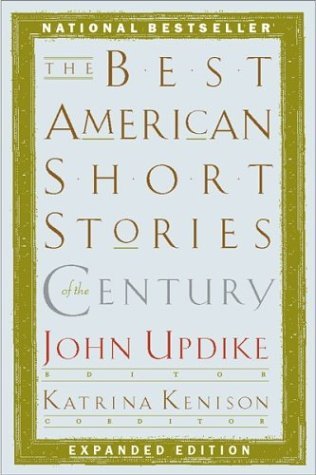He stood silently. He stood silently in the dark. He stood silently in the dark with his own.
-from “Sense of Direction” by Leonard Casper
…is a college graduate a better Christian? Was Jesus a college graduate? These are some things to think about.
-asked by Hattie Clegg in “Her Breath Upon the Windowpane” by William Goyen
Here are some thoughts on the stories I’ve read so far from The Best American Short Stories 1951 edited by Martha Foley.
Flight Through the Dark by Roger Angell – A father waffles between hope and despair during the beginning of the atomic age. The story is a depiction of his decision to choose hope – especially the way that his life doesn’t just all of a sudden change for the better. It’s a definite decision on his part to be hopeful.
Inland, Western Sea by Nathan Asch – Lots of characters on a bus all with different stories and all reacting to a family in need (also on the bus). It has a minor surprise at the end that is also one of the funniest endings I’ve read in a long time.
A Fugitive From the Mind by Peggy Bennett – As a child, an accident while playing sends Ezzie Bard on a search for redemption. Maybe he finds it at his country church in North Carolina – or maybe not. Powerful in its ambiguity and in its final line: “Few youths came harder to morality.”
The End of the Depression by Mary Bolte – The resilience of children push their father to get through the Great Depression. Similar to “Flight Through the Dark” just different American era, different American tragedy.
In Greenwich There Are Many Gravelled Walks by Hortense Calisher – Read this one previously. Posted about it here.
Sense of Direction by Leonard Casper – A father and a son both take harrowing journeys. Toward each other.
Larchmoor is Not The World by R. V. Cassill – A cynical male professor of an all-girls college attempts to help a student. Is the professor’s cynicism appropriate or not? It’s hard to say but it’s a fascinating question to ponder. Of this group of stories, I think he’s my favorite character.
The Season of Divorce by John Cheever – Nothing says marital trouble like a potted geranium thrown across the room. And few authors write about marital trouble better than John Cheever.
The Hunters by Harris Downey – Separately, two American soldiers lose their company in France. One ceases to care what side he is on and just wants to hunt. One still cares but hunts anyway. This was my least favorite of this group of stories.
The Temperate Zone by Elizabeth Enright – Emma spends her days with her newborn son looking out of her cabin at the frozen tundra thinking of her home with palm trees. The reader doesn’t know exactly where Emma is or exactly where she came from or why she moved north. It might have something to do with her husband, Lars.
The Kingdom of Gordon by J. Carol Goodman – Six year-old Gordon gets his clerical father and God a little mixed up. An odd, yet oddly satisfying, story.
The Value of the Dollar by Ethel Edison Gordon – A middle-aged widow travels to Mexico and can’t seem to shake a serape salesman. This wasn’t a favorite, either.
Her Breath Upon the Windowpane by William Goyen – Hattie Clegg seems to always be at the bottom of the social ladder while helping to raise her siblings and supporting her parents. Her lack of education doesn’t seem to hurt her, though. Except socially. She’s another favorite character in this group of stories
Of this group of stories, my favorites based on my own likes and dislikes would be “Sense of Direction” and “Inland, Western Sea”.
Up next is “The Summer People” by Shirley Jackson. I’m looking forward to finally reading this. It might get its own post. We’ll see.
See my previous post on Why Am I Reading The Best American Short Stories 1951?






